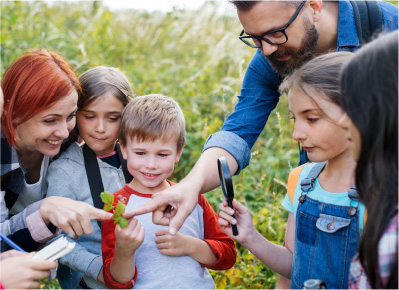Emotional Intelligence and Kids’ Behavior: What You Need to Know
Studies have shown that a child’s level of emotional intelligence is a significant predictor of delinquency. Children with higher emotional intelligence and self-awareness are less likely to exhibit delinquent behavior. While youths who live in disadvantaged areas are exposed to more risk-factors that cause higher delinquency rates, troubled kids exist at every socioeconomic level. What can be done to improve emotional intelligence and develop happier, healthier children of all backgrounds? Read on to learn three modalities promoting healing and improving emotional intelligence in disadvantaged kids.
Art is the Ultimate Way to Boost Emotional Intelligence
Expressive art forms are helpful to the healing trauma victims as they grow their self awareness and develop emotional intelligence. Drawing is a form of nonverbal communication allowing one to release experiences and make meaning from them. Art calms the mind and improves mood, aiding in emotional self-regulation. It helps kids learn new skills and concepts, developing neural connections in the brain. When done in a group or with a therapist, art develops trust and allows children to appreciate people’s differences. Physically, art improves motor skills, hand-eye coordination, and muscle development.
Many of Believe In Me’s programs are aware of the creative arts’ cognitive benefits. Hands-on art projects like handcrafted volcanoes and rockets can be incorporated into therapy activities to help retain the knowledge gained during the school year while allowing opportunities to express individualism and creativity. These projects link science and art while sparking the imagination.
Parents can also help children reap art’s benefits by encouraging them to make art in a non-judgemental setting. They can talk with their children about what they chose to do and how they feel. Whether a child is struggling or not,incorporating the arts into their lives is essential for all aspects of their development.
Playtime is the Perfect Time to Learn Emotional Intelligence
Play aids every child development area, including emotional intelligence, and has been recognized as a right of every child by the United Nations High Commission for Human Rights. Play helps kids develop language skills, problem-solving abilities, creativity, and self-control. Several studies show that children pay more attention in school after they’ve had unstructured time for free play at recess. Playworks, another 2020 grant program recipient, recognizes obstacles to healthy play and gives schools tools to foster a productive environment for play during recess.
Playworks’ mission is important because several obstacles to play remain. Parents are told they must give their kids every opportunity to improve their futures, resulting in overscheduling. Changing family structures result in a lack of supervision, preventing play. However, parents can ameliorate these issues by prioritizing time for play at home using whatever materials are present, modeling play, and being open to a safe amount of risk. To support this, Playworks has provided free resources for cultivating play at home on their Facebook page.
Nature Is the Best Medicine When it Comes to Emotional Intelligence
To discover how outdoor immersion helps kids’ emotional intelligence, Believe In Me volunteer, Kaylee Bosse was accompanied by Rick Severn of the Dishman Hills Conservancy on a walk through nature. Severn noted that hikers often focus on reaching a particular destination, whereas outdoor education promotes intentional wandering. Instead of focusing upward on the trees and sky’s expanse as most usually do, Severn urged Kaylee to examine some flowers scrupulously. . He handed Kaylee a small cardboard window colored black to block out everything surrounding the flowers to peer through and urged her to share observations.
Severn said he uses this focus tool with children to encourage them to ask questions and make their own meaning out of their observations. This honors and grows the child by allowing them to create their own learning experiences.
Kaylee was also prompted to listen to her surroundings with her body. She suddenly became more aware of the feeling of the wind changing and the varying softness of the ground beneath her feet. This experience was incredibly meditative and Severn says it helps aid kids’ cognitive and emotional development.
These insights are backed with extensive research. Exploring nature invites kids to ask questions and test hypotheses, which helps them develop intellectually. Being outside allows children to express themselves in ways they usually cannot, promoting greater emotional health. Children also develop essential social skills such as teamwork and empathy when playing with other kids outside. The physical benefits of playing outside are undeniable— they get exercise, absorb Vitamin D, and build their immune systems.
Parents can help their children reap the benefits of nature in several ways. The Dishman Hills’ Be at Home in Nature Series helps children keep up their academic skills in a fun manner. Videos and activities are continually developed, so be sure to check the YouTube channel and dishmanhills.org frequently.
Giving Disadvantaged Kids the Gift of Emotional Intelligence
There is something magical about creating art, playing music, and exploring outside. These enrichment activities take kids to another place and provide them opportunities to use their imagination and see a new world full of possibility. Positive play environments, getting outdoors, and learning to enjoy the arts allow the whole child to be spontaneous, exhibit their resilience, and find the enchantment to spin up their own dreams and play out their instinctive nature. Believe In Me values these important components in the development of our community’s kids.
Without your support, our programs would be unable to allow their kids to experience the healing powers of art, play, and the outdoors in the same capacity. Please consider donating or volunteering with Believe In Me so that these children can continue to grow and develop the emotional intelligence and confidence they need to succeed.







